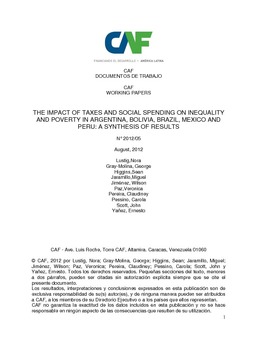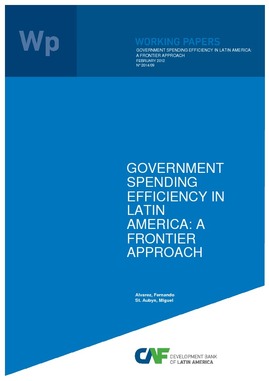Mostrar el registro sencillo del ítem
Does Increasing Public Spending in Health Improve Health? Lessons from a Constitutional Reform in Brazil
| dc.contributor.author | Clarke, Damian | |
| dc.contributor.author | Rocha, Rudi | |
| dc.contributor.author | Szklo, Michel | |
| dc.coverage.spatial | América Latina y el Caribe | es_ES |
| dc.coverage.spatial | Brasil | es_ES |
| dc.date.accessioned | 2024-09-27T21:16:39Z | |
| dc.date.available | 2024-09-27T21:16:39Z | |
| dc.date.issued | 2024-09-26 | |
| dc.identifier.citation | Clarke, D., Rocha, R., & Szklo, M. (2024, September 26). Does Increasing Public Spending in Health Improve Health? Lessons from a Constitutional Reform in Brazil. Retrieved from https://scioteca.caf.com/handle/123456789/2300 | en_GB |
| dc.identifier.uri | https://scioteca.caf.com/handle/123456789/2300 | |
| dc.description.tableofcontents | There is surprisingly scarce evidence regarding the extent to which and how government health expenditure affects health outcomes. Exploiting variation generated by Brazil’s 29th Constitutional Amendment, which mandated minimum thresholds for municipal spending on health, we examine the chain connecting government health spending to health inputs, production and outcomes, with a focus on infant mortality. We find relatively low average elasticities, but relevant heterogeneity in spending returns. Reductions in infant mortality are greater where baseline spending was lower, pointing to concave returns; where investments in infrastructure and personnel were complementary; and particularly where strong institutional and public management capabilities exist. | es_ES |
| dc.language.iso | en | es_ES |
| dc.rights | CC-BY-NC-ND | es_ES |
| dc.rights.uri | http://creativecommons.org/licenses/by-nc-nd/4.0/ | es_ES |
| dc.subject | Gobernabilidad | es_ES |
| dc.subject | Salud | es_ES |
| dc.title | Does Increasing Public Spending in Health Improve Health? Lessons from a Constitutional Reform in Brazil | es_ES |
| dc.type | Article | es_ES |
Ficheros en el ítem
Este ítem aparece en la(s) siguiente(s) colección(ones)
-
6.1 Documentos de trabajo en investigación socioeconómica
En esta colección se encuentran los documentos de trabajo sobre temas económicos y sociales prioritarios para la región.




